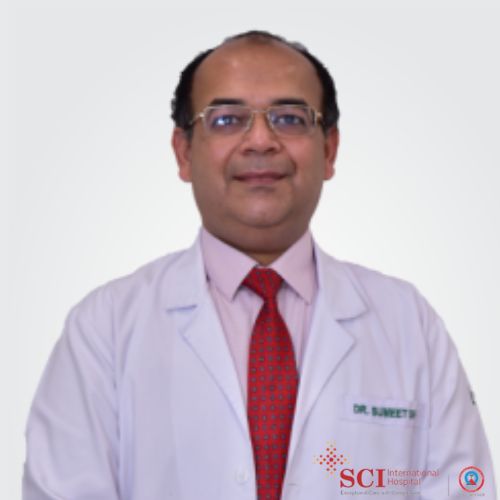Gastric bypass surgery is a weight-loss procedure that changes how your stomach and small intestine process food. It helps you feel full with less food and absorb fewer calories. This surgery is often recommended for people with severe obesity or related health conditions like diabetes and high blood pressure. It offers long-term weight loss and improved health but also requires permanent lifestyle changes, including diet and vitamin supplements.
We Are Rated
Consult Now
Gastric bypass surgery, also known as Roux-en-Y gastric bypass, is a type of bariatric surgery. It helps you lose weight by changing how your stomach and small intestine handle the food you eat. After surgery, your stomach will be smaller, and food will bypass part of your digestive system. This means you eat less and absorb fewer calories.
It is considered one of the most effective treatments for obesity and obesity-related health issues like type 2 diabetes, high blood pressure, sleep apnea, and joint pain.
There are two common types of gastric bypass procedures:
1. Roux-en-Y Gastric Bypass (RYGB)
This is the most common method. The surgeon creates a small pouch at the top of your stomach and connects it directly to the small intestine. Food bypasses most of the stomach and part of the intestine.
2. Mini Gastric Bypass (MGB)
This newer method uses a longer, narrower stomach pouch and a simpler connection to the small intestine. It takes less time to perform but may not suit everyone.
Your surgeon will recommend the best option based on your health, weight, and medical history.
Gastric bypass is usually recommended for people who:
Gastric bypass is typically performed laparoscopically, meaning the surgeon uses small incisions and a camera to guide the tools. It’s less invasive, with quicker recovery than open surgery.
This rerouting allows food to "bypass" a large portion of your stomach and part of your intestine.
The entire procedure takes about 2–4 hours under general anesthesia. Most patients stay in the hospital for 2–3 days.
Key stages:
Recovery from gastric bypass surgery involves both physical healing and lifestyle changes.
Hospital Stay:
While gastric bypass is generally safe, some people have a higher risk of complications, such as:
Your healthcare team will evaluate your overall health before surgery to minimize risks.

MBBS, MS - General Surgery, DNB - General Surgery, General Surgeon,Laparoscopic Surgeon,Bariatric Surgeon

MBBS, MS - General Surgery, General Surgeon, Bariatric Surgeon, Laparoscopic Surgeon
Considering the expenses associated with gastric bypass surgery is crucial; costs can fluctuate based on personal circumstances, insurance coverage, and the facility's location.
Rather than providing a specific price range, it's best to consult with SCI Hospital or other healthcare providers directly. They can give you a personalized cost estimate based on your unique needs. SCI Hospital may be able to help you navigate financing options and explore how various health insurance plans and government schemes might cover part or all of the procedure
Gastric bypass is generally safe, but like any surgery, it comes with some risks. Early complications may include bleeding, infections, blood clots, or leakage from the surgical connections. Over time, some patients may experience issues like nutrient deficiencies (such as iron, calcium, or vitamin B12), dumping syndrome, ulcers, bowel blockages, gallstones, or hernias. These complications are relatively rare and can usually be managed with regular follow-ups, dietary changes, and proper supplements.
Life after gastric bypass involves major lifestyle changes, but most people experience positive results. Patients typically eat smaller portions, take daily supplements, and follow a balanced diet. Many notice significant weight loss, improved energy levels, better control of conditions like diabetes and high blood pressure, and an overall boost in confidence and quality of life.
Yes, gastric bypass is a permanent procedure. The changes made to your stomach and digestive system are not reversible in most cases. However, long-term success depends on your commitment to healthy eating, regular exercise, and medical follow-ups.
Gastric bypass is done under general anesthesia, so you won’t feel pain during the procedure. After surgery, mild to moderate pain or discomfort in the abdomen is common, especially around the incision areas. Most patients manage this easily with prescribed pain medications, and discomfort usually improves within a few days.
Consult Now
